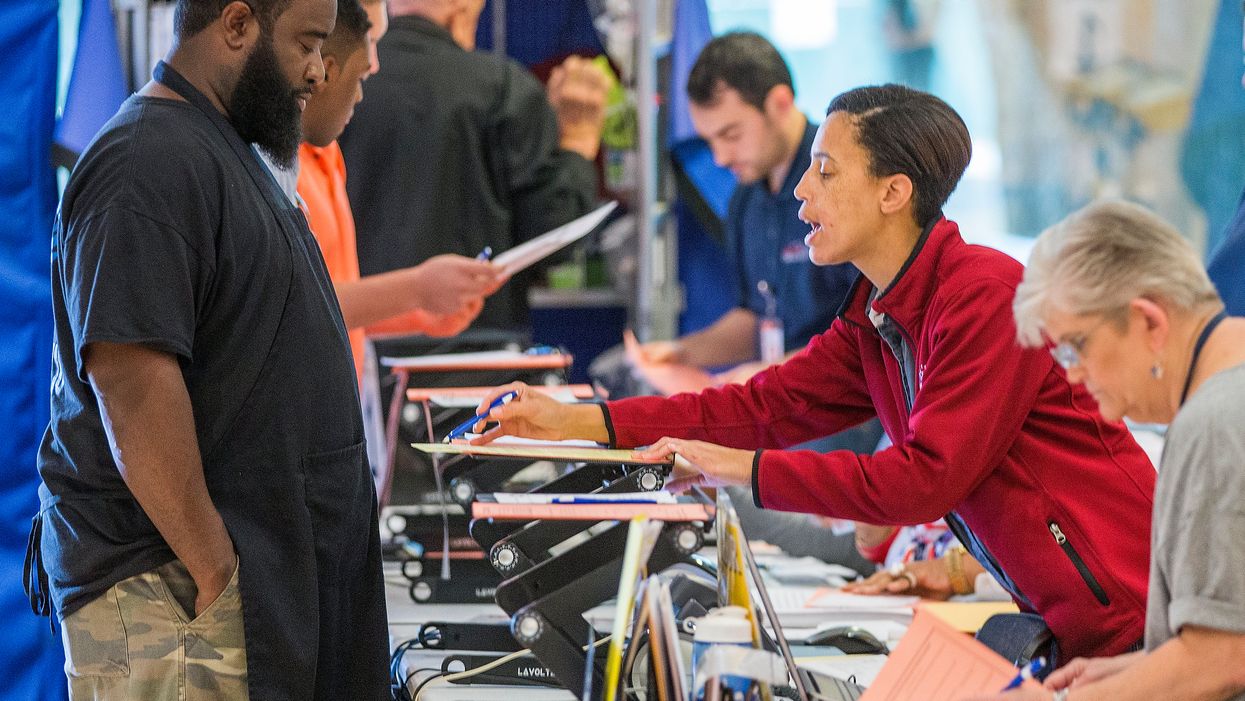Hundreds of thousands of felons will be able to participate in Florida's local elections next month, and the presidential primaries next year, for the first time since their incarceration.
That is the most immediate and consequential result of a federal judge's decision to temporarily block implementation of a state law that imposes financial requirements before criminals released from prison and done with parole may reclaim the franchise.
Friday's ruling was a major victory for both civil rights advocates and for the two-thirds of Floridians who endorsed last November's ballot measure restoring voting rights to an estimated 1.4 million felons who have completed their sentences — the largest single expansion of voting rights in the United States in half a century and the biggest ever mandated by a popular vote.
It was a significant defeat for the Republicans in control of state government, who enacted a law in June restricting the vote to felons who had paid all fines, fees and restitution — a move that would prevent far more than half those released from the state's prisons from ever registering.
Gov. Ron DeSantis said he would not appeal the decision but would instead ask the Legislature to revise the law when it convenes next year. This assures felons may vote in local contests in three weeks and makes it highly likely they'll all be able to vote in the state's potentially crucial presidential primary March 17 — the fourth-biggest delegate prize in next year's Democratic nominating contests.
U.S. District Judge Robert Hinkle issued something of a split decision last week. He ruled that while it's acceptable for the state to ask that all financial penalties be paid, it's not acceptable to bar people from voting if they cannot afford to pay.
Florida "cannot deny restoration of a felon's right to vote solely because the felon does not have the financial resources to pay the other financial obligations," Hinkle declared, citing as precedent a federal appeals court ruling from 14 years ago.
He blocked implementation of the current law until at least April, when he'll conduct a trial on the question of whether the fine and fee payment requirements amount to an unconstitutional poll tax.
"When an eligible citizen misses an opportunity to vote, the opportunity is gone forever; the vote cannot later be cast," Hinkle wrote in explaining the rational for his injunction. "So when the state wrongly prevents an eligible citizen from voting, the harm is irreparable."
The judge said the Legislature must come up with a measure permitting poor felons to vote, which he suggested could be as simple as amending Florida's voter registration application to allow felons to declare themselves indigent.
A spokeswoman for DeSantis, Helen Aguirre Ferré, said the governor agrees with the judge's decision. Hinkle's ruling, she said, "affirms the governor's consistent position that convicted felons should be held responsible for paying applicable restitution, fees and fines while also recognizing the need to provide an avenue for individuals unable to pay back their debts as a result of true financial hardship."
Some Republicans in Tallahassee are working behind the scenes on legislation that could respond to a more sweeping ruling from Hinkle next year that the repayment law amounts to a poll tax, or to the results of a separate lawsuit challenging the June statute that's headed to the Florida Supreme Court.
For now, county elections officials have no means for determining if a felon can afford to pay court assessments.
The repayment law was widely seen as an attempt by the GOP to suppress turnout from a new bloc of voters in the biggest state with a nearly even partisan split. Many if not most of the former felons are Latinos or African-Americans, whose votes generally go lopsidedly to the Democrats.
The nonprofit Florida Rights Restoration Coalition has raised nearly $1 million to help felons pay outstanding fines and will conduct a statewide bus tour next month to help them understand how to register.
The restoration of the vote was ordered by 65 percent of the electorate in November and applies to all felons, except those convicted of murder or sex offenses, who have completed their sentences. The GOP said the subsequent law is true to the voters' wishes because court-imposed financial obligations are part of a sentence.
But critics say the move is undeniably similar to the sort of poll taxes used to disenfranchise black voters during the era of Jim Crow, which led to ratification in 1964 of the 24th Amendment assuring that the right to vote cannot be denied for failure to pay "any poll tax or other tax."
The decision is "a critical step towards ensuring that the voting rights of other people with felony convictions are not trampled on by Florida officials," Leah Aden, the deputy director of litigation for the NAACP Legal Defense and Educational Fund, said in a statement. "We will continue to fight for full relief for Florida voters who must not pay to vote."




















Marco Rubio is the only adult left in the room